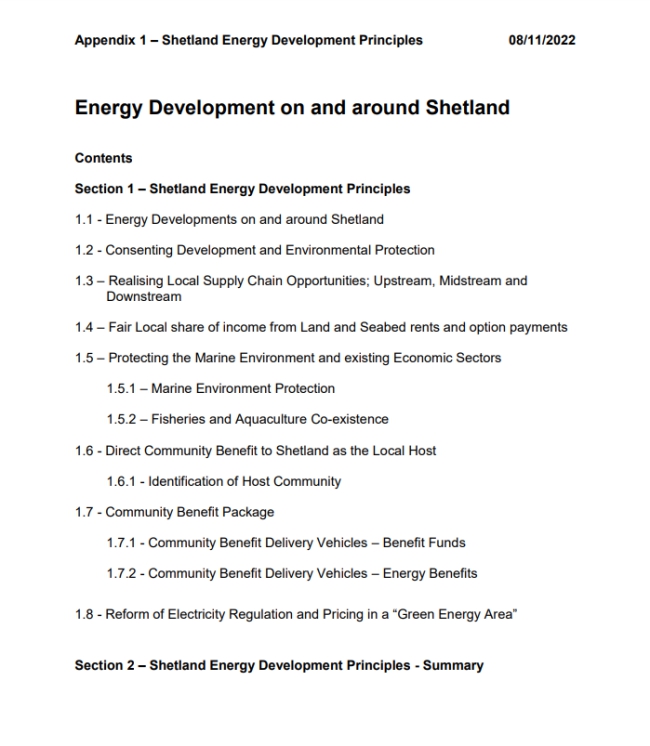Campaign at all levels to ensure future developments recognise that energy affordability is already a key issue in Shetland, and ensure that progress on that issue is designed into all significant proposals and solutions.
In December 2022, Shetland Islands Council approved a set of ‘Shetland Energy Development Principles’. These principles will now be promoted to all existing and prospective energy developers, UK and Scottish Governments, their agencies, relevant regulators and others. A number of Shetland partners were consulted during the refinement of the principles and have been supportive throughout their development.
There are eight different principles including:
1.4 – Fair local share from land and seabed rents and option payments:
Shetland Islands Council believes that current arrangements for a share of rental income from the landlords of the seabed, UK and Scottish Governments, does not represent a fair balance between local and national interests and should be revised to recognise the critical importance of the surrounding seas for sustainability and well-being of communities like the islands groups to deliver a more just arrangement.
1.7 – Community benefit package:
- Shetland Islands Council believes that £5,000 per installed Megawatt (indexed) or c2.5% of generation value is also an appropriate quantum for community benefit payment to the Shetland community for all offshore wind projects anywhere within the Shetland sea area and regardless of distance from shore.
- That same c2.5% of value should be the quantum for all oil and gas developments in the waters around Shetland.
- All community benefit arrangements should cover the full life of production or generation and not be artificially time-bound.
- That c2.5% of value quantum provides an appropriate basis to scale any energy contributions as an additional mechanism to cash payments. We recognise that the specifics of each community benefit package may differ between projects, however we believe that the overall benefit level should be aligned.
- The council considers that further research and engagement should be carried out to determine whether energy contributions could be a viable and beneficial additional route to secure the most impactful community benefit outcomes from future renewable generation projects and how that would be practically implemented.
Any arrangement would have to include some viable mechanism to allow energy benefits to be realised by local households and businesses, to combat fuel poverty and improve energy affordability, and to Shetland businesses to improve business competitiveness.

